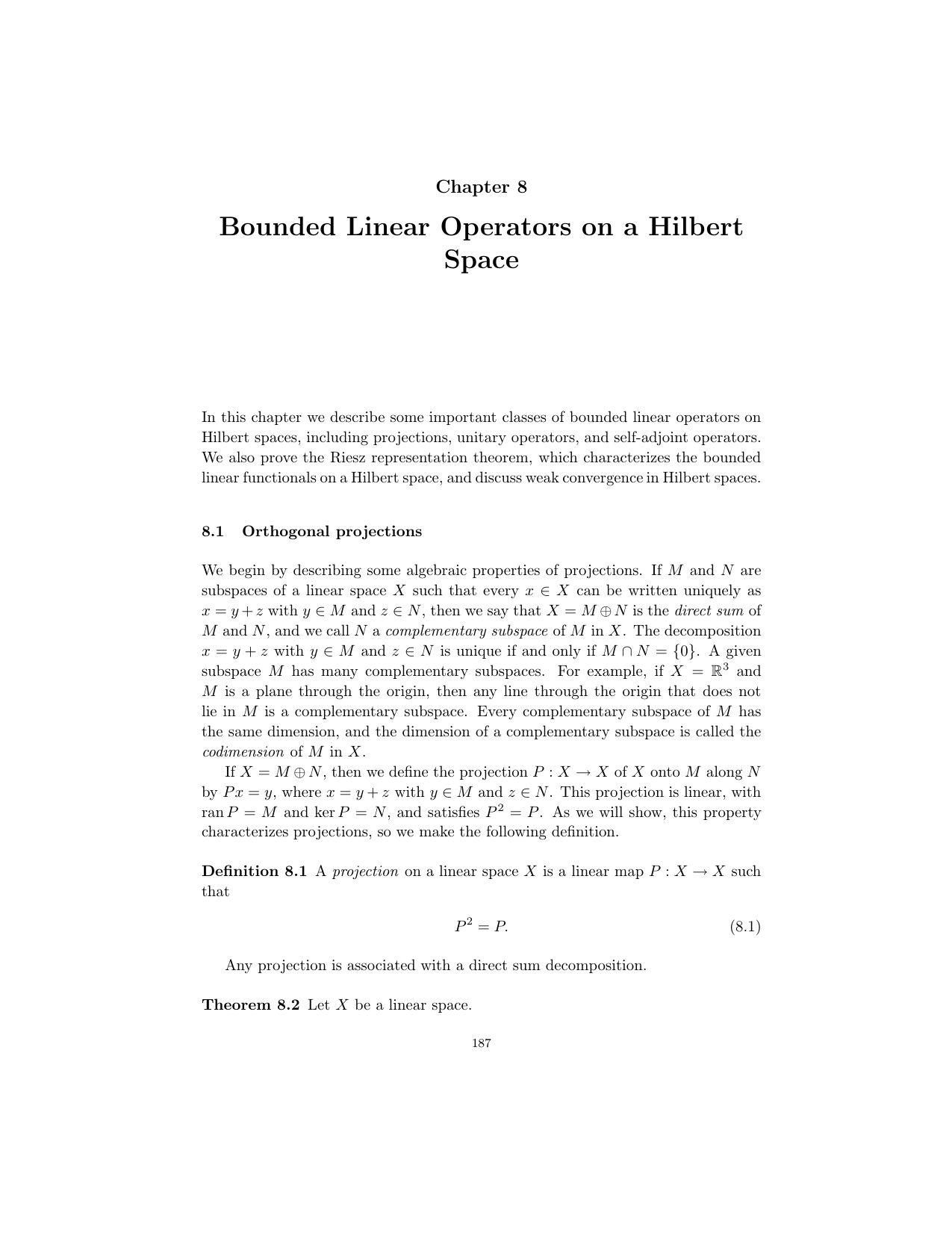
As a consequence, only certain measurements can determine the value of an observable for some state of a quantum system. That is, observables in quantum mechanics assign real numbers to outcomes of particular measurements, corresponding to the eigenvalue of the operator with respect to the system's measured quantum state. The eigenvalues of observables are real numbers that correspond to possible values the dynamical variable represented by the observable can be measured as having. In quantum physics, observables manifest as linear operators on a Hilbert space representing the state space of quantum states. These transformation laws are automorphisms of the state space, that is bijective transformations that preserve certain mathematical properties of the space in question. Physically meaningful observables must also satisfy transformation laws that relate observations performed by different observers in different frames of reference. For example, these operations might involve submitting the system to various electromagnetic fields and eventually reading a value. In quantum physics, it is an operator, or gauge, where the property of the quantum state can be determined by some sequence of operations. In systems governed by classical mechanics, it is a real-valued "function" on the set of all possible system states. In physics, an observable is a physical property or physical quantity that can be measured.

( May 2009) ( Learn how and when to remove this template message) Please help to improve this article by introducing more precise citations. This article includes a list of general references, but it lacks sufficient corresponding inline citations.


 0 kommentar(er)
0 kommentar(er)
